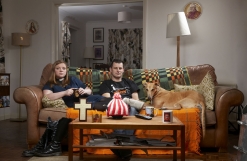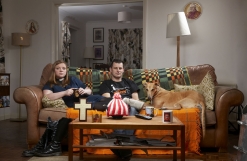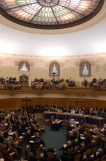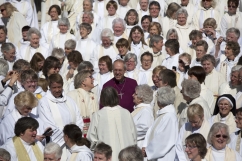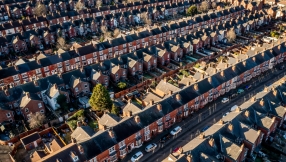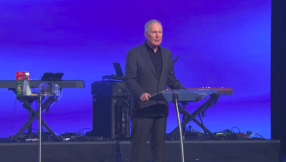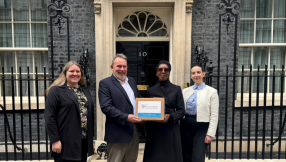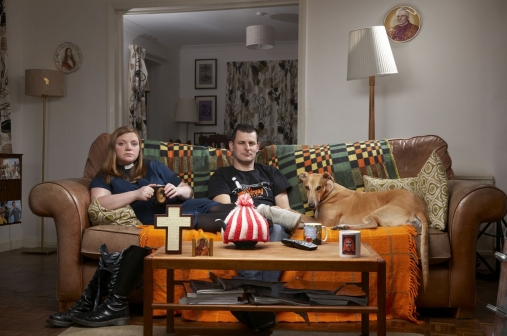
A leading witch and herbalist shared a Church of England platform last night with other women religious leaders including the Presiding Bishop of the US Episcopal Church and Gogglebox tv vicar Rev Kate Bottley.
Helene Mobius, who heads the prison chaplain ministry of the Pagan Federation, challenged stereotypes of women at the event, the latest in the Westminster Faith Debates series at London's liberal flagship church, St James's Piccadilly.
The Pagan Federation and the Druid Network have recently become fully-fledged members of Britain's religious establishment, having been voted into the Inter Faith Network UK as a body representative of its community.
Paganism had a "deep reverence" for both the feminine and masculine, not in a partnered but in a "conjoined" sense, she said.
This was not to diminish the role of God because without His "fertile seed" the cycle of life could not continue, she added. She criticised the debasement of women in society which had seen words such as "crone", which once meant "elder", used as a term to mean something quite different.
"The word crone does not mean wizened old cackling pagan," she explained. Instead it referred to a woman who had passed beyond menstruation. It was the "passage of the mother becoming grandmother, no longer able, thankfully, to reproduce."
This led to some discussion about whether there should be an authorised liturgy in the Church to mark the menopause.
"We are not meek and mild and timid. We are primordial," said Mobius.
Bottley described how she had told her hairdresser she was coming to London to take part in the debate on women bishops and the difference they can make. "What's a bishop?" her hairdresser asked. After the vicar explained, the hairdresser said she did not know what the Church of England was either.
She also referred to the new "headship" bishop, Preb Rod Thomas, appointed in the Church of England to minister to opponents of women's ordination on the conservative evangelical wing. Her hope was that he would in years to come find himself sitting in a room, all on his own.
Most Rev Katharine Jefferts Schori said women and men were created in the image of God, with generative and stewardship responsibilities. She also spoke up powerfully for women who suffer terrible discrimination around the world, such as one country she knew of where a woman widowed by Aids was forced to marry the brother of her dead husband and he took possession of her property and children. She said the Church in that country did not intervene to help the woman.
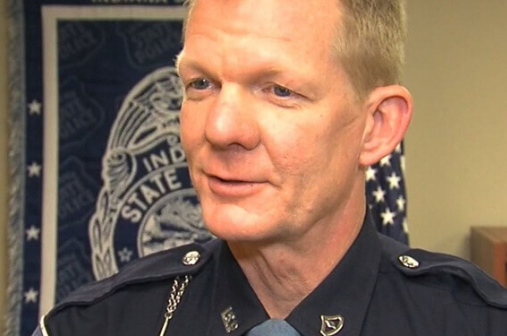
Rev Lucy Winkett, Rector of St James's, said she hoped that women bishops would open up space for issues such as domestic violence to be addressed more effectively. It mattered not so much that women were bishops and priests, as "how" they were bishops and priests. The authority held by a woman will be held "differently" from that held by a man. "It won't necessarily be held more nicely," she warned.
Rabbi Laura Janner-Klausner was applauded for her moving acapella solo of The Lord's My Shepherd, sung with female instead of male pronouns.
Linda Woodhead, director of the Westminster Faith Debates, spoke up for the many Catholic lay women in positions of prominence and leadership within their Church. The packed church of St James's heard that prominent Church of England campaigner Christina Rees will be among the speakers at the conference in Philadelphia later this year of Catholic movement for women's ordination, Women's Ordination Worldwide.
Adam Dinham, the only man on the panel, and who is married to a Muslim man, and who was there as director of the Faiths and Civil Society Unit at Goldsmiths, which sponsored the event, said he had wanted the evening to celebrate and think about the contribution of women as faith leaders in the Anglican community as well as other religions and traditions.










